All about Cannabis
Why Didn’t Frank Zappa Like Cannabis? – Cannabis | Weed | Marijuana
Published
9 months agoon
By
admin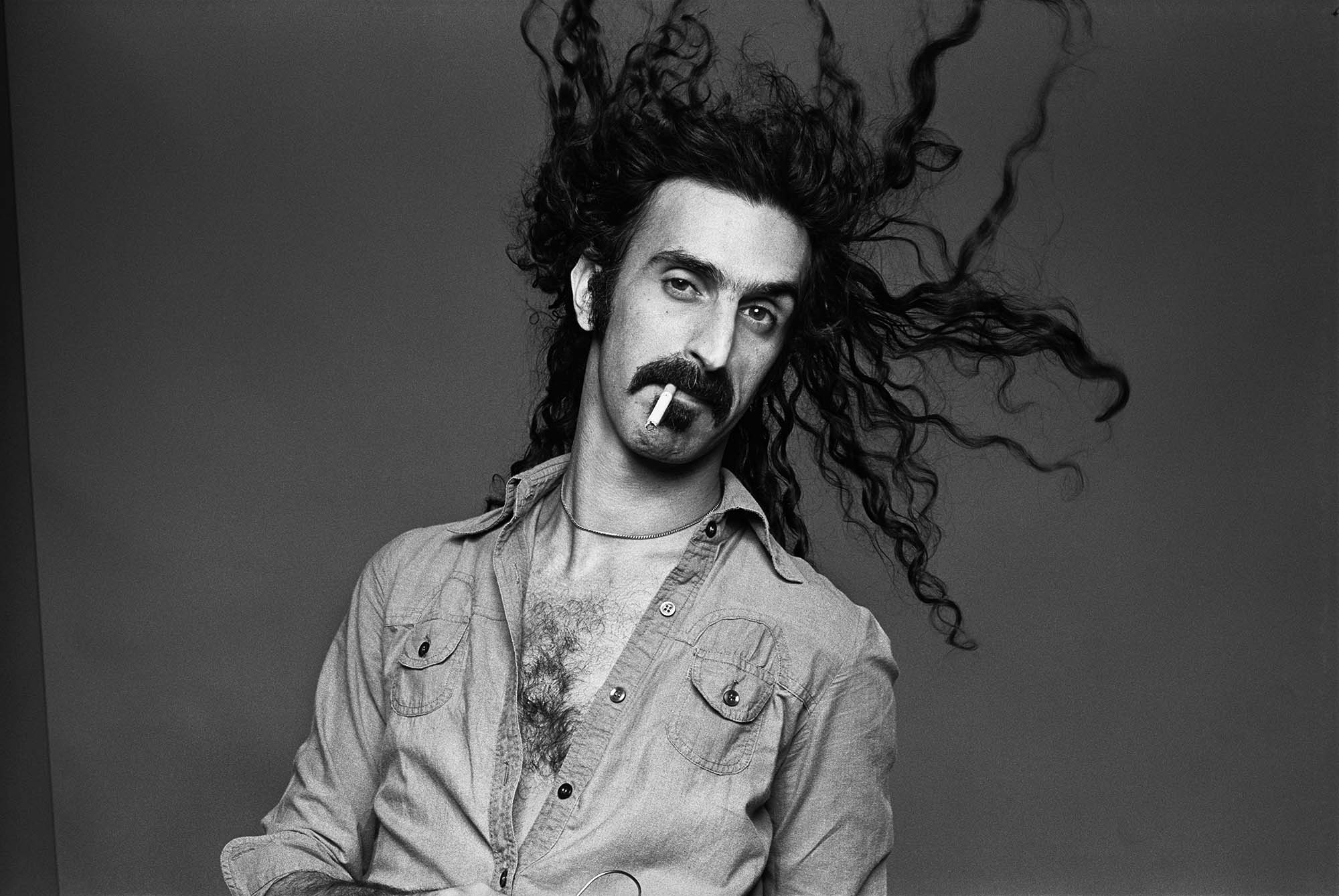
Why didn’t Frank Zappa like cannabis?
American composer Frank Zappa would have been 83 years old this December if he hadn’t died of cancer in 1993.
The frontman for the 60s’ era rock band The Mothers of Invention, Zappa continued into the 1970s and 80s as a solo artist, releasing multiple albums per year.
Zappa was more than prolific, however. These weren’t standard rock albums with 4/4 beats. Zappa incorporated jazz, blues, experimental and orchestral music into his discography.
Zappa’s music could range from the complex stylings of “Echidna’s Arf (of You)” to the comical (and catchy) “Dancing Fool.” And he was constantly stirring up controversy. Whether with his song “Jewish American Princess” or the instrumental “G-Spot Tornado.”
But what about Frank Zappa’s politics? Namely, his views on drugs and the drug war. It’s typical for musicians from the 1960s and 70s to be steeped in drug culture, mainly cannabis and psychedelics like LSD.
But Frank Zappa wasn’t interested in any of that. He didn’t drink alcohol, either. The only drug he did was tobacco, which he called his “favorite vegetable.”
As he wrote in his autobiography, The Real Frank Zappa Book:
I like tobacco. As a kid, I took cigarettes out of ashtrays and pulled them apart to see what was inside. I liked the way tobacco smelled; I didn’t care whether it was fresh or stale. Some people like garlic; I like tobacco. I like pepper, tobacco and coffee. That’s my metabolism.
But what about cannabis? Did Frank Zappa like cannabis, and if not, why?
What Did Frank Zappa Think About Drugs?
In The Real Frank Zappa Book, Zappa writes about his experience with cannabis.
Between 1962 and 1968, on maybe ten occasions, I experienced the ‘joys’ of socially circulated marijuana. It gave me a sore throat and made me sleepy. I couldn’t understand why people liked it so much. (If I had liked it, I’d probably be smoking it today, since I like to smoke.)
Of course, THC levels in the sixties were lower than today. As well, cannabis hits everyone differently. While THC activates our cannabinoid receptors and produces a high, how one interprets this feeling is entirely subjective.
And Zappa seemed to understand this. He writes about “the magic of Altered Body Chemistry.”
Americans use drugs as if consumption bestowed a ‘special license’ to be an asshole. Whatever heinous act they might have participated in the night before can be instantly excused by saying they were ‘high’ while they were doing it.
Frank Zappa wrote this in the 1980s. Forty years later, not only is this insight still relevant, but it’s a battle many of us are still waging.
Addiction and recovery “experts” put drugs on a pedestal. As if drugs contain magical powers that change the content of our thoughts and compel us to keep using against our better judgment. Even cultural norms dictate that getting drunk gives you a special licence to misbehave.
Zappa, way back in the 1980s, recognized that this was bullshit. “I think the mutant behaviours exhibited by people’ under the influence’ should be studied more closely,” he wrote.
Forty years later, we have those studies thanks to the work of people like Dr. Carl Hart, Dr. Stanton Peele, or researchers from the Baldwin Institute.
Drugs, like cannabis, are active placebos. Cannabis can’t cause mental health problems any more than alcohol can cause you to become violent.
That’s not to say drugs don’t have their benefits. There are still physiological changes, and that’s one of the many reasons you may enjoy cannabis. And why Frank Zappa enjoyed smoking tobacco even though it eventually killed him.
Why Didn’t Frank Zappa Like Cannabis?
What’s up with Frank Zappa and cannabis? Why wouldn’t he let his band consume it while on tour? They were allowed to enjoy a beer after a show, and like Zappa, they could smoke as much tobacco as they wanted.
But why zero tolerance on cannabis? Zappa held libertarian political beliefs. He was against the drug war. He once told an interviewer, “What you do at home is your business.”
So why not allow his bandmates to partake? Simply because it was illegal.
As Frank Zappa told Trooper Charles Ash of the Pennsylvania State Police:
When a person takes the job in the band, they understand that what they do in their private lives is their business. But if they’re on the road, they are representing me, they’re representing my music, and they’re representing the need for the audience to get entertainment on time. That means you don’t go to jail when you’re on the road, OK? So I ask them not to use drugs. If they want to do them when they get home – fine. But when they’re on the road, please don’t do it. Because aside from the chemical damage, there’s the legal risk that somebody’s going to take their freedom away, and I’m going to be sitting there, going, “where’s the drummer?” I have fired people for using drugs.
Odds are, if cannabis had been legal back in the 1980s, then Zappa would have permitted a joint after a show in the same he allowed moderate alcohol consumption.
It’s not that Frank Zappa didn’t like cannabis. Personally, it wasn’t for him. But his real issue was with the drug war. He advocated for the full legalization of cannabis, decriminalizing harder drugs, and a shift from criminalizing addiction to helping break free and move on.
To say he was ahead of his time is an understatement. Frank Zappa was also a free-speech absolutist. In the 1980s, he and others (including country singer John Denver) battled against the cancel culture of the religious right.
No doubt, today, he would be equally critical of the religious “woke” left and its cancel culture.
Top Ten Frank Zappa Albums to Pair with Cannabis
Music and cannabis have always been a great pairing. And since Frank Zappa’s music is weird, many may prefer a little cannabis before listening.
If you’re new to Frank Zappa and wondering where to start, look no further.
10. Roxy & Elsewhere
A classic 1970s-era live album, this was my introduction to Frank Zappa. It’s a healthy balance of rock, jazz fusion, and comedic lyrics. The energy of the crowd brings out the best in the band. Highlights include “Village of the Sun,” “Echidna’s Arf (of You),” and “Cheepnis.”
9. The Yellow Shark
Released a month before his death, The Yellow Shark comprises of orchestral music written by Zappa himself. Drawing from his classical influences, Zappa said this album was one of the most fulfilling projects of his career. Singer and Zappa fan Tom Waits lists it as one of his favorite albums, and we agree. Highlights include “Uncle Meat,” “Pound for a Brown,” and “G-Spot Tornado.”
8. Sheik Yerbouti
If you’re looking for a more comedy-orientated album that still showcases Zappa’s musical prowess, Sheik Yerbouti is the album for you. Combined with some cannabis and Frank Zappa will have you laughing your ass off.
Sheik mainly contains live material with extensive overdubs that Zappa added in the studio. It includes parodies of musicians Peter Frampton and Bob Dylan, the concept of the American Dream, and Jewish female stereotypes. The latter of which attracted attention from the Anti-Defamation League. Highlights include “Bobby Brown,” “Dancin’ Fool,” and “Jewish Princess.”
7. Freak Out!
The one that started it all. Recorded with the original band, The Mothers of Invention, Freak Out starts off as straight rock music influenced by rhythm and blues. But the deeper you get into it, the more avant-garde it becomes.
Rolling Stone magazine listed Freak Out! as one of the 500 Greatest Albums of All Time, and we agree. The opening lyrics to the first song (“Mr. America walk on by, your schools that do not teach.”) introduces Zappa as a social critic and multi-talented musician. Highlights include: “Hungry Freaks, Daddy,” “Any Way the Wind Blows,” “Trouble Every Day,” and “Help I’m a Rock.”
6. The Grand Wazoo
An instrumental jazz fusion album, this Zappa album is perfect for those more interested in Zappa’s music rather than his social commentary or comedic lyrics. Highlights include “The Grand Wazoo,” and “Eat That Question.”
Top Ten Frank Zappa Albums to Pair with Cannabis
5. Läther
In the 1970s, Zappa produced a four-LP box set called Läther. The record company said, “No one is ever going to buy that,” and broke the album into four different issues. In 1996, the Zappa Family Trust finally released Läther as Frank Zappa intended.
For those looking for the quintessential Zappa experience, Läther offers three hours of Zappa’s distinctive signature sound. The album includes rock, orchestral works, comedic lyrics, and complex jazz pieces. Highlights include: “Down in De Dew,” “RDNZL,” “The Black Page,” and “The Ocean Is the Ultimate Solution.”
4. Overnite Sensation/Apostrophe
Technically these are two separate albums. But they were recorded together in the same studio with the same band and released only a few months apart. Both albums are only 30 minutes each, so they are a single album for this list.
This combo is probably the best introduction to Frank Zappa, whether you’re smoking cannabis or not.
While Zoot Allures may be Zappa’s most accessible rock album, Overnite Sensation/Apostrophe is Zappa’s most accessible rock-jazz album, combined with some hilarious lyrics. Highlights include: “I’m the Slime,” “Dinah-Moe Humm,” “Montana,” “Don’t Eat the Yellow Snow,” “Cosmik Debris,” “Apostrophe,” and “Uncle Remus.”
3. One Size Fits All
If you’re a fan of Pink Floyd, Rush, Yes, or any of those progressive rock bands from the 1970s, this is the Zappa album for you. Like the above album combo, One Size is a rock album with jazz influences. But this album is textured and layered in ways that Overnite, Apostrophe, or Zoot lack. Many consider One Size to be Zappa’s best, and it’s hard to disagree. Highlights include: “Inca Roads,” “Andy,” and “Sofa No. 1 & 2.”
2. Hot Rats
Whenever you find a list compiling the top jazz fusion records of the 20th century, Zappa often makes the cut for this album. Captain Beefheart appears on one of the songs on an otherwise instrumental jazz-rock album. Hot Rats contains plenty of Zappa’s unique guitar soloing.
In the liner notes, Frank Zappa calls the album “a movie for you ears,” and when combined with cannabis, we could not agree more. To this day, I have not found a single person who does not like “Peaches en Regalia.” Highlights include: “Peaches en Regalia,” “Willie the Pimp,” and “The Gumbo Variations.”
The Best Frank Zappa Album to Pair with Cannabis
1. We’re Only in It for the Money
OK, so maybe this isn’t the best album for a Zappa beginner list. Especially if you’re smoking a particularly strong strain. This Frank Zappa album should be paired with cannabis only after going through the first nine albums.
So why include it? Simple. This is the best Frank Zappa album, period.
Recorded in 1968 with the Mothers of Invention, this album satirizes the hippie subculture, drug use, establishment politics (and anti-establishment politics). On first listen, the album sounds like the psychedelic rock from the era, albeit more experimental. But upon repeated listens, you pick up phrases and tunes from classical music and jazz.
The original cover (featured here) was censored at the time. While The Beatles gave their thumbs up, business managers didn’t. Capitol Records threatened legal action unless Zappa changed the cover. Recent releases have reissued the album with the intended front cover.
Highlights include: “Who Needs the Peace Corps?,” “Absolutely Free,” “Flower Punk,” “Let’s Make the Water Turn Black,” and “Take Your Clothes Off When You Dance.”
You may like
-


The Economic Impact of Cannabis
-


“A big deal”: What the feds’ move to reclassify marijuana means for Colorado cannabis
-
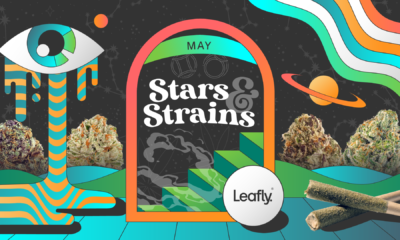

Star signs and cannabis strains: May 2024 horoscopes
-


Yesterday’s Marijuana Rescheduling News, Explained
-


The Marijuana Industry’s Secret Playbook to Get Weed Legalized in All 50 States
-
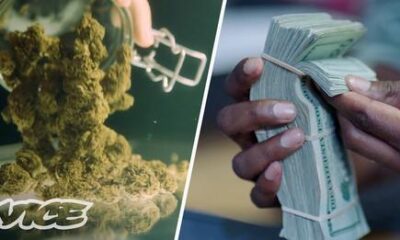

The Green Rush to Colorado’s Multibillion-Dollar Weed Industry | WEEDIQUETTE
All about Cannabis
Five Cannabis Stories You Might Have Missed – Cannabis | Weed | Marijuana
Published
7 months agoon
October 3, 2023By
admin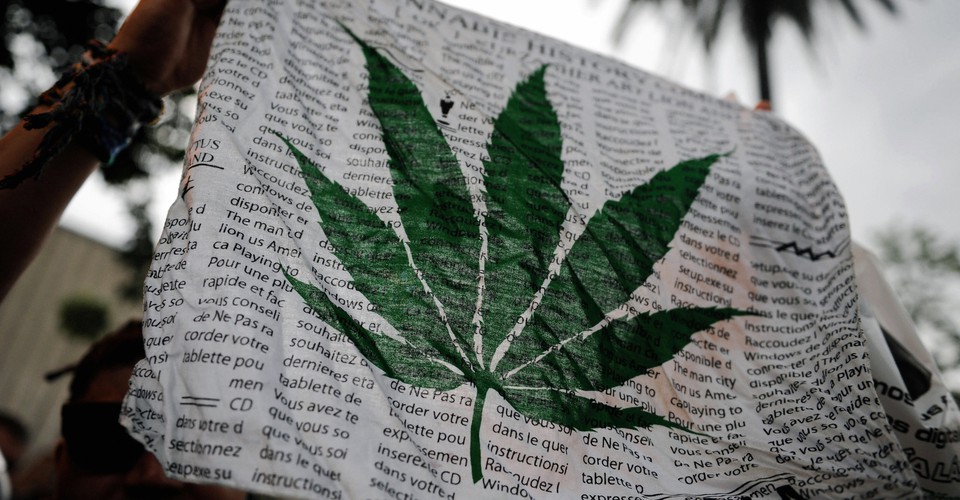
What are the five cannabis stories you might have missed? Nowadays, it’s impossible to keep up with cannabis news stories across the world. Whether it’s banking reform and rescheduling in the United States, legalization in Europe or Thailand, or Canada’s experiment with corporate legalization.
Here are five cannabis stories you might have missed.
Five Cannabis Stories You Might Have Missed
Suing Over Cannabis Rescheduling
U.S. Attorney Matthew Zorn is suing the Biden Administration over cannabis rescheduling, particularly over the secrecy of it all. If you missed this cannabis story, here are the details.
Last month, the U.S. Health and Human Services Department (HHS) sent a letter to the Drug Enforcement Administration (DEA) suggesting they reschedule cannabis.
Currently, the U.S. government lists cannabis as a Schedule 1 drug, in the same category as heroin. The HHS letter suggests it should be a Schedule 3. Cannabis would still be a controlled substance but with fewer restrictions.
U.S. Attorney Matthew Zorn has filed an official complaint in the U.S. District Court. He says the letter “has become an item of public interest.” He has asked the court to force the Biden Administration to release “improperly held agency records.”
Zorn tried a Freedom of Information Act request but to no avail. HHS “has not produced the requested record” and “did not make a timely determination within 20 days,” the complaint alleges.
60% Higher Risk of Cardiovascular Problems Linked to “Cannabis Use Disorder”
Another day, another study finding an “association” between cannabis and something terrible. This time, it’s cardiovascular problems. You haven’t missed much if you missed this cannabis news story.
Here are some problems with the study:
Correlation is not Causation. Like most of these “cannabis is bad for you” studies, the researchers have merely made an association. Fortunately, this study explicitly states there is no causation. They simply found an association after controlling for variables.
Confounding Variables. While the study adjusts for some variables, it says it cannot account for tobacco smoking due to data limitations. This is obviously a significant limitation.
Smoking cigarettes is a far more significant risk factor for cardiovascular diseases than smoking cannabis.
Not being able to parse out this variable makes the study beyond useless. It’s literally disinformation. If you missed this cannabis news story, then you’re better off for it.
Five Cannabis Stories You Might Have Missed
Sampling Cannabis in British Columbia
You might have missed this cannabis story out of British Columbia, Canada.
After years of stigma and drug war propaganda, the British Columbia government is finally starting to loosen their cannabis rules and regulations.
Licensed producers can now provide samples for retailers. The Grow Up Conference and Expo was the first cannabis industry event to take advantage of the new rules.
Advocates say the new regulations will benefit the industry in several ways. Retailers will now be able to see the product they’re buying and sample it for their customers.
Unfortunately, retailers cannot provide samples to customers yet. But the industry is hopeful that it’s in the works. That’s undoubtedly a cannabis new story we wouldn’t want to miss.
Thailand To Reconsider Cannabis Decriminalization
You might have missed this vital cannabis news story: Thailand may re-criminalize cannabis.
Two years ago, Thailand became the first Asian country to decriminalize cannabis. But its government, led by Prime Minister Srettha Thavisin, has vowed to roll back cannabis legalization.
In an interview with Bloomberg Television in New York while attending the UN General Assembly, Srettah made clear that residents of the country will only be able to use cannabis for medical reasons.
“It’s just for medical reasons. We need to rewrite the law,” he said.
Current legislation has cannabis removed from a list of narcotics. Individuals are supposed to notify their local government if they want to cultivate plants at home. But so far, the government has not created any regulations regarding cultivation and sales.
This regulatory vacuum has created a “free-for-all” industry much like the “wild-west” of British Columbia before Justin Trudeau’s corporate cannabis takeover.
While some estimated Thailand’s cannabis market may be worth nearly $2 billion, the new government ensures that money will remain in the black market.
Five Cannabis Stories You Might Have Missed
SAFER Banking Almost a Reality
We covered this one, but you might have missed this important cannabis news story.
Less than a week after being re-introduced, the SAFER Banking Act found approval by the Senate Banking Committee on September 27. The committee voted 14-9 to advance the legislation to the Senate floor.
The text of the new amendment is not yet available publicly. But give it enough time, and U.S. Attorney Matthew Zorn may sue to get the details released.
But overall, thanks to this committee, the movement toward cannabis reform in the United States just got a shot in the arm.
All about Cannabis
What is Vivek Ramaswamy’s Position on Cannabis? – Cannabis | Weed | Marijuana
Published
7 months agoon
October 2, 2023By
admin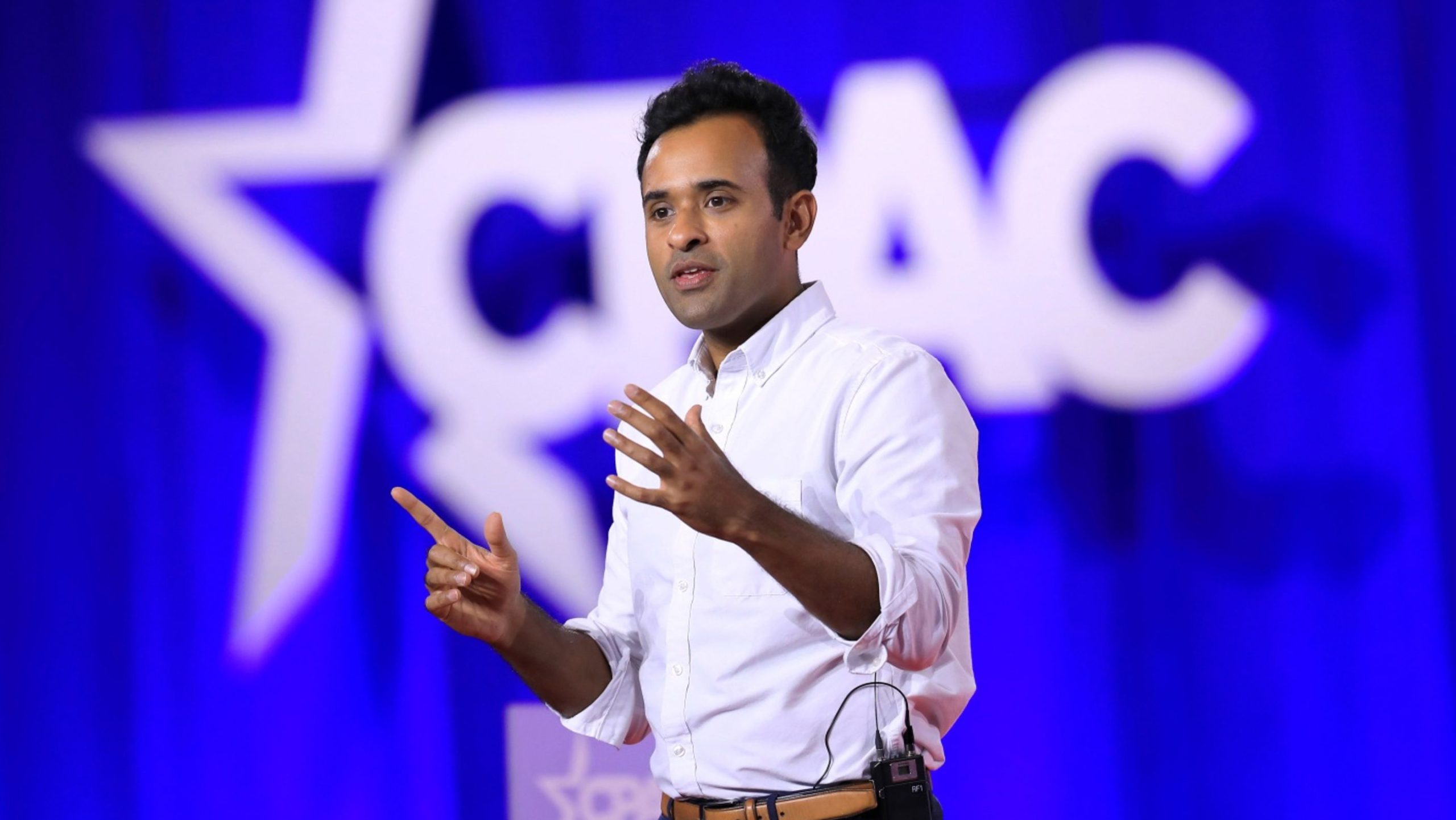
What is Vivek Ramaswamy’s position on cannabis? “You don’t hear me talk about the war on drugs. I’m not a war on drugs person,” Ramaswamy said when he appeared at a Free State Project event in New Hampshire last June.
Vivek Ramaswamy is an American entrepreneur seeking the Republican nomination to run for President of the United States.
Ramaswamy told the crowd he was “probably the only person in the modern history” of the Republican Party to talk about decriminalizing drugs for people with PTSD and other mental health problems.
“Psychedelics,” he said specifically. “From ayahuasca to ketamine… That’s gotta be part of the solution.”
But what is Vivek Ramaswamy’s position on cannabis? He told Fox News:
We got to catch up with the times. It’s not a popular position in the Republican Party, but I’d just, again, I guess I’m going to speak the truth. Whether you vote for me or not is your choice. I think the time has come to decriminalize it.
Later, a spokesperson from his campaign said:
The current state-level ‘legalization‘ farce contributes to the culture of lawbreaking. It’s literally against the law. For us to pretend otherwise only undermines the rule of law in this country. For that reason, Vivek favors the federal legalization of marijuana.
What is Vivek Ramaswamy’s Position on Cannabis?
What is Vivek Ramaswamy’s Position on Cannabis? Decriminalization or legalization? Once upon a time, those meant the same thing. And indeed, in America, this may still ring true.
Vivek isn’t shy about wanting to rule by executive fiat. Suppose he’s the next U.S. President and unilaterally deschedules cannabis. Not a rescheduling, a complete descheduling.
As far as the federal government is concerned – cannabis is not its business.
Is that decriminalization or legalization? For operators in legal states, it certainly helps their tax situation. And why would the financial system fear a plant the government has delisted as a controlled substance?
Is that legalization or decriminalization? Or are those terms synonymous?
If a Ramaswamy Administration removed cannabis from the Controlled Substances Act entirely, there would be a few implications.
Implications of De-Scheduling Cannabis
Vivek Ramaswamy’s position on cannabis could empower state-level regulations. If the federal government takes a literal hands-off approach, you could argue that’s not legalization.
But is legalization ideal? Should Washington D.C. force states like Idaho to legalize? Suppose people in Idaho want to consume cannabis legally. There are 23 other states they can move to, including next-door neighbors.
Even if all 50 states legalized – isn’t it better to have local regulation of a competitive and complex modern industry? Think of the supply chain: cultivation, production, packaging, distribution, sales, marketing, and everything in between.
Do you want D.C. bureaucrats in charge of all that? Isn’t that how lobbyists capture the process and rig the rules against the little guys?
When The Feds Do Get Involved
Of course, some will argue Vivek Ramaswamy’s position on cannabis can’t be entirely hands-off. Somebody is going to have to regulate interstate commerce and international trade.
Imports and exports are federal jurisdiction and always have been. Of course, Vivek’s brand of governing may detest interstate regulation. A Ramaswamy Administration may create a free-for-all for all industries, not only cannabis.
One can hope.
And, of course, FDA bureaucrats will want to control aspects of cannabis, especially if it’s used in food products or marketed as a medical treatment. In a sense, descheduling and taking a hands-off approach empowers the existing bureaucracy.
But Vivek can use the stroke of the Presidential pen and tell the FDA to buzz off. Such is the state of the American “republic.”
Of course, if Vivek Ramaswamy becomes President, he won’t be able to decline the tax revenue. Who can, really? Except for maybe Ron Paul.
So, the federal government may tax cannabis. And so Vivek Ramaswamy’s position on cannabis matters a great deal.
But there’s something else. And it involves Vivek’s policy on the Federal Reserve Bank.
Vivek Ramaswamy’s Position on Cannabis & Money Could Change the World
Vivek Ramaswamy’s position on cannabis and money could change the world. And here’s how.
Experts must control money. That’s what the experts say. That’s why supply and demand don’t determine interest rates. You can’t trust free markets, they say. You need a central planning committee of experts.
But when the hell has that ever worked? This is not the 1920s, this is the 2020s. We have evidence of central planning, and the results are far worse than any of the theoretical excesses of free-market capitalism.
But suppose the experts are right about one thing. The price of money is too volatile to leave to a truly random process. That there should be a more market-based approach to price stability.
As in, leave it to the experts, but not the boardroom suits. Leave it to the people who are actually buying and selling in the market on a daily basis.
Like Vivek Ramaswamy’s position on cannabis, his proposal for the Federal Reserve is a breath of fresh air—a novel idea in an age of corporate-state shallowness.
What is a Government Gold Standard?
A country on a gold standard exchanges its currency for gold at a fixed rate, say, $35 an ounce. And vice versa. So, if the market price of gold goes beyond $35, people bring in their dollars to exchange for gold.
This process means the number of dollars in circulation decreases, so the value of the dollar increases. This continues until the market price of gold is back to $35.
If the market price drops below $35, the same process works in reverse. Historically common, it’s not without its flaws. Governments tinker with the mechanism like a curious 12-year-old who takes apart the television to see how it works (and ends up breaking it in the process).
A gold standard keeps the value of the money constant relative to the market price of gold. Economists have all kinds of critics and rebuttals as to why that wouldn’t work today in the “modern” economy.
To their credit, relying on gold as the sole commodity backing the government currency does run into problems. Especially when governments are always trying to cheat the system.
Vivek Ramaswamy’s position on cannabis stems from listening to the people and the real experts (i.e. not “public health”). He is responding with the correct answers. He has – more or less – done the same with the subject of the Federal Reserve and the money.
What is a Commodity Bundle Standard?
Vivek Ramaswamy should combine his positions on money and cannabis.
Vivek wants a commodity bundle standard to help solve the problem of using government currency. In this system, the market defines the U.S. Dollar as a collection of commodities. This collection or bundle is valued by what’s in it.
For example, suppose you had one million dollars. You take it to the bank and demand your bundle. It could consist of a few pounds of gold and silver, but it’d mostly be a claim on commodities (i.e. 100 pounds of grade A beef, 10 barrels of crude oil, 1,000 board feet of lumber).
Likewise, anyone who brings in a bundle (the claim on commodities) gets a million dollars. This keeps the bundle’s price at a million dollars and, thus, a stable purchasing power, assuming nobody is messing with the bundle.
Vivek Ramaswamy’s Position on Cannabis & Money Could Change the World
Vivek Ramaswamy could combine his positions on money and cannabis by including 1,000 pounds of industrial hemp biomass and 500 grams of premium-grade cannabis flower in the commodity bundle.
Regarding “changing the world,” you’ll have to refer to some of our past posts on the subject.
The main takeaway: eliminating the elite’s ability to create money out of thin air and charge interest on it can only be construed as a step in the right direction.
In fact, it’s the first step.
All about Cannabis
Regulating Cannabis like Fish – Cannabis | Weed | Marijuana
Published
7 months agoon
September 29, 2023By
admin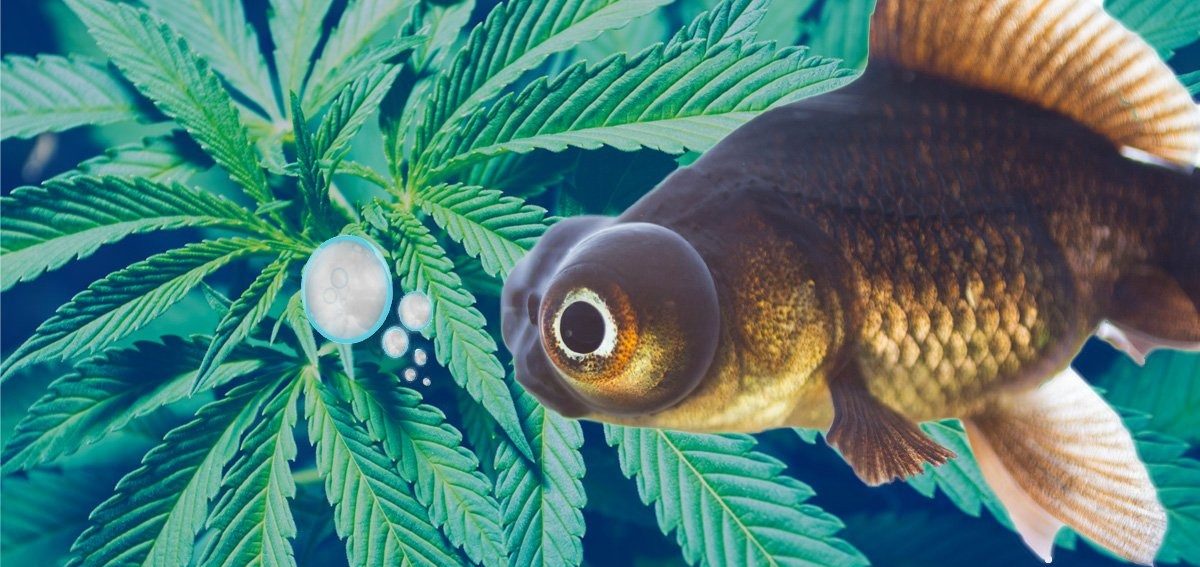
Regulating cannabis like fish? Excuse me, what? According to Leah Heise, the cannabis industry can learn much from commercial fishing.
An accomplished cannabis exec, Leah’s been the CAO of Ascend Wellness Holdings, the CEO of Women Grow, CXO of 4Front Ventures and President of Chesapeake Integrated Health Institute.
While at Ascend, Leah focused on growing the business from 73 employees to more than 1300 in less than 18 months, taking the company from $19M in revenue in 2019 to a $1.6B market cap in 2021.
Leah is also a medical cannabis patient, having discovered the herb after being hospitalized over 35 times for pancreatitis.
Leah Heise is a cannabis expert. Her expertise is unparalleled, unlike the so-called “experts” in the media who spew drug war propaganda.
So when she says the cannabis industry has much to learn from commercial fisheries, our ears perk up.
Regulating cannabis like fish? Say what?
Regulating Cannabis from Stigma
Having experience in the regulatory landscape, Leah knows what’s working and what’s doomed to fail. And unfortunately, most legal states have been regulating cannabis from a position of stigma.
“We do everything by piecemeal, by litigation. It’s very costly to the system and there’s just a better, more streamlined way to do it,” says Leah. “And I think that potentially regulating it similar to a commercial fishing industry may be the way to do it.”
Of course, Leah points out that there are other options, and this is just one of many ideas. But, she says, “These regulators need to understand the things they are regulating.”
“They’re doing it from a place of stigma and lack of education,” Leah says. “We have to turn back one hundred years of stigma and propaganda.”
Whether it’s racial stigma or false beliefs that cannabis will rot your brain, Leah emphasizes education. From scientific papers proving cannabis’ efficacy to patient stories to studies that associate legal cannabis with fewer cases of domestic abuse and alcoholism.
“The industry and the plant need a rebrand,” says Leah. “It’s not Cheech and Chong. It’s everyone; it’s diverse. Anybody could be using this, from your great-grandmother to your child, depending on what they have. It’s not going to make their brains die or reduce IQ.”
Regulators Need Education
Simply put, the public (and many regulators) are uneducated on cannabis. Drug warriors amplify its alleged harms while marginalizing its medical and therapeutic benefits.
But how would regulating cannabis like fish help? Leah admits that if the feds get involved, a strong regulatory body needs to be created.
“Or just let the states do it,” she says. “We don’t necessarily need another layer on top.”
But suppose the federal government does step in and institute national cannabis regulations. What can we learn from the commercial fishing industry?
Regulating Cannabis like Fish
What can the cannabis industry learn from commercial fishing? How does one regulate cannabis like fish?
“Fisheries is a highly regulated industry,” says Leah. “Because the government’s trying to balance the interests of the environmental groups with the interest of the commercial fishing industry.”
Yes, they are separate products, but both are natural and come from the Earth. Likewise, generations of people work in the industry, whether it’s multiple generations of fishermen (and women). Or the legacy farmers in the cannabis industry (especially in black and brown communities).
With the commercial fishing industry, there’s the problem of overfishing. “In an effort to save the planet, and the fisheries themselves, the federal government has stepped in,” says Leah.
And she sees opportunities for the cannabis industry and its regulators to learn from the commercial fishing industry.
Commercial fishing regulators don’t regulate from a place of stigma. “I haven’t seen a single state,” says Leah, referring to legal cannabis states, “where there’s not a massive lawsuit. And even with Schedule III, there’s going to be lawsuits.”
Learning from the Commercial Fishing Industry
Leah prefers a more comprehensive way of regulating cannabis, which borrows from the successes of the commercial fishing industry.
“They design things called fishery management plans,” she says. “Scientists in the government will come forward and say, ‘okay we’re starting to see Atlantic sea scallops start to collapse. We’re seeing a decline in the number of new pollock. And we need to come up with a fishery management plan to work this.’”
Leah says the commercial fishing industry has councils with different stakeholders, from environmental groups to commercial industries to recreational groups.
“They come together to regulate themselves,” says Leah. “It speeds up the process and really eliminates a lot of the issues in terms of getting sued, because stakeholders at least feel like they have a voice.”
“Nobody walks away happy,” Leah adds. “Which is kind of what happens with any real decent negotation, right? Everybody’s giving a little.”
Leah thinks having a board of stakeholders would prevent things like canopy caps or taxing inside the supply chain. Things that ultimately hurt the industry and only empower illicit markets.
The problem, says Leah, is that current cannabis regulators “aren’t holistically looking to see what the impacts are,” of the various regulations they’ve instituted.
Regulating Cannabis like Fish – Unintended Consequences?
Is there any state already doing this? What are the odds D.C. will create cannabis regulations that embody the principles of the commercial fishing industry?
One of the biggest problems, says Leah, is the lack of money on the enforcement side. From her regulator days, Leah recalls:
We were handed often times very dense regulations to enforce. But we weren’t given the money that we needed to be given to it, to hire the people, and train the people we needed to actually enforce those regulations.
The result is cannabis operators openly flaunting the rules because paying the fines is sometimes cheaper than observing the regulations.
There’s also debate on how heavy cannabis regulations should be. Should we regulate it like alcohol? Or should we consider cannabis a vegetable no more dangerous than a carrot?
“I think that the polarization that exists in this industry exists in the country,” says Leah, so there’s no easy answer.
Unintended Consequences
But one thing to watch out for is the unintended consequences of regulation. Leah recalls visiting Africa, particularly Botswana, about a year ago.
“The Gates Foundation had contributed billions of dollars worth of mosquito nets,” Leah recalls.
They thought that giving people mosquito nets would eliminate malaria. But what they didn’t understand is that [the Bostwanans] needed food. So what the people did was they used the nets to fish with. But the nets were covered with pesticides. It killed off all the fish. And you still have malaria, and you have no food, and it’s because there wasn’t really a holistic decision in that instance. [The Gates Foundation] wasn’t informed enough to answer what the real primary need was.
Unintended consequences are an unavoidable fact of life. In Canada, for example, the government legalized cannabis from a position of stigma and propaganda. The result is a thriving black market catering to consumer demands the legal market can’t fulfil.
With that in mind, we asked Leah how likely, on a scale of one to ten, would the United States legalize and regulate according to rational and holistic principles? Will authorities regulate cannabis like fish?
If ten is the ideal and one is stigma and propaganda, what’s the verdict?
“I think it’s going to be less than 5,” says Leah. And like the situation in Canada or the more restricted US legal states, the consequences of regulating from stigma suggest a robust illicit market.
“You can decide to go the legal route or you can decide to go the illegal route,” says Leah. “But you’re not going to make it go away.”

The Economic Impact of Cannabis

“A big deal”: What the feds’ move to reclassify marijuana means for Colorado cannabis

Star signs and cannabis strains: May 2024 horoscopes

Yesterday’s Marijuana Rescheduling News, Explained

The Marijuana Industry’s Secret Playbook to Get Weed Legalized in All 50 States

The Green Rush to Colorado’s Multibillion-Dollar Weed Industry | WEEDIQUETTE

DEA plans to move to reschedule marijuana as a lower-risk drug

What is a Jamaican Steam Chalice and Why Should You Try Smoking Weed Out of One?

These Two Iconic Cannabis Companies Could Disappear

Amsterdam to ban cannabis in its red light district

Distressed Cannabis Business Takeaways – Canna Law Blog™

United States: Alex Malyshev And Melinda Fellner Discuss The Intersection Of Tax And Cannabis In New Video Series – Part VI: Licensing (Video)

Drug Testing for Marijuana – The Joint Blog

What you Need to Know

Cannabis, alcohol firm SNDL loses CA$372.4 million in 2022

NCIA Write About Their Equity Scholarship Program

City Of Oakland Issues RFP For Employee Training Programs

It has been a wild news week – here’s how CBD and weed can help you relax

A new April 20 cannabis contest includes a $40,000 purse

UArizona launches online cannabis compliance online course
Trending
-

 Cannabis News1 year ago
Cannabis News1 year agoDistressed Cannabis Business Takeaways – Canna Law Blog™
-

 One-Hit Wonders1 year ago
One-Hit Wonders1 year agoUnited States: Alex Malyshev And Melinda Fellner Discuss The Intersection Of Tax And Cannabis In New Video Series – Part VI: Licensing (Video)
-

 drug testing4 months ago
drug testing4 months agoDrug Testing for Marijuana – The Joint Blog
-

 Cannabis 1011 year ago
Cannabis 1011 year agoWhat you Need to Know
-

 Marijuana Business Daily1 year ago
Marijuana Business Daily1 year agoCannabis, alcohol firm SNDL loses CA$372.4 million in 2022
-

 Education1 year ago
Education1 year agoNCIA Write About Their Equity Scholarship Program
-

 Education1 year ago
Education1 year agoCity Of Oakland Issues RFP For Employee Training Programs
-

 Cannabis1 year ago
Cannabis1 year agoIt has been a wild news week – here’s how CBD and weed can help you relax



























